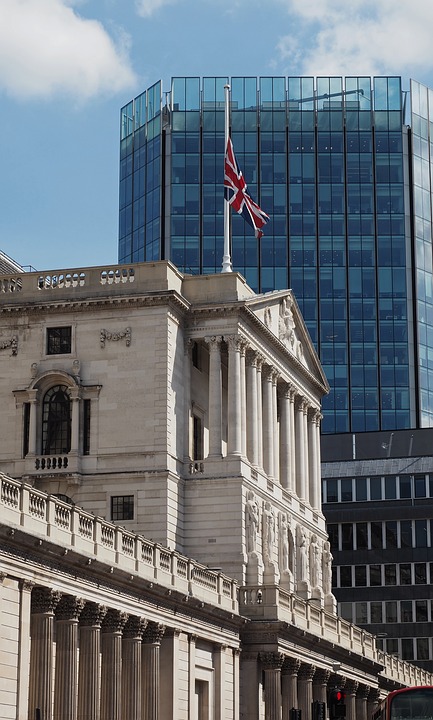An analyst at Swiss investment bank UBS suggests investors limit their allocation to UK assets – Pound Sterling included – until the current uncertainty around Brexit clears.
If the suggestion is heeded by investors, Pound Sterling could be in for a slow summer as professionals remain on the sidelines until the official exit day nears in October.
“Literally 100% of the conversations I have had with our clients, especially those based outside of the UK, have been about whether it is time to get back in, back into UK property, stocks and Sterling. But we just need the uncertainty to clear,” says Geoffrey Yu of UBS Wealth Management’s UK Investment Office.
The call by Yu comes as Sterling, like the broader currency market, enters a period of depressed volatility, with the Pound-to-Euro exchange rate seen hovering in the 1.15s and the Pound-to-Dollar exchange rate maintaining a small range around 1.30.
Evidence of the market’s desire to steer clear of Sterling is also apparent in positioning data that shows the market is now neutral after bets against the currency were steadily closed out over recent weeks.
In short, taking a directional bet on the currency is proving a hard ask for uncertain currency traders at present.
Analysts at UBS maintain “a long-term bearish Sterling bias”, noting it is 10% overvalued according to one of their preferred models used to gauge a currency’s valuation.
The suggestion that investors avoid Sterling and other UK assets comes despite strong wage data being released last week which some analysts had taken as a sign the Bank of England (BoE) might be tempted to raise interest rates sooner than previously expected. Typically steadily improving data – particularly wage data and inflation – plays positive for a currency as they signal the need for higher interest rates at that currency’s central bank.
As a rule-of-thumb, currencies tend to rise when central banks raise interest rates, and fall back when they cut.
Many economists however see policymakers leaving interest rates unchanged until the Brexit fog clears.
“Given the current uncertainty around the ‘B-word’ I think the BoE will probably remains on hold,” says Yu in an interview with Bloomberg News.
UK wages raced higher by 3.4%, and 3.5% including bonuses, in March but economists says this does not provide enough cause to expect the BoE to immediately ponder raising interest rates in the current political environment. “The UK labour market remains very tight which should be reflected in a further pick-up in wage growth,” says Elsa Lignos, a foreign exchange strategist with RBC Capital Markets. “The problem is that it cannot translate into expectations of BoE hikes while Brexit uncertainty persists, and so it is hard to make it a positive GBP story.”
Some economists have even suggested the strong wage growth is in fact another symptom of Brexit uncertainty with businesses opting to invest in staff instead of investing in more expensive new equipment. “In a period of acute uncertainty over Brexit, firms chose to invest in people – who remain relatively cheap – rather than make long-term bets on expensive capital, such as new premises, machinery or software,” says Mike Jakeman, senior economist with PwC.
The BoE will therefore arguably be quite content to allow a ‘nice buffer’ of real earnings to exist between inflation and income growth. This will allow the “BoE to probably focus on other things,” says Yu.
Indeed, Sterling barely reacted to the release of strong labour market data on April 16, suggesting the market wants to see a substantial move for the better in UK data before it bids Sterling.
What would have driven the Pound in the past simply doesn’t have the same clout in 2019.
Concerning the Pound’s outlook, UBS are forecasting a lower Sterling against the Euro over coming months with the Pound-to-Euro exchange rate forecast to trade at 1.1236 by year-end.
The Pound-to-Dollar exchange rate is however forecast to trade at 1.35, reflecting a broadly softer Dollar environment.
“Risks of a ‘no deal Brexit’ have subsided and Eurozone political tensions appear contained. We are however still cautious on the GBP as continued uncertainty weighs on the macro outlook and prevents a more meaningful Sterling recovery,” says Vassili Serebriakov, a strategist with UBS.
A Stronger Pound Ahead say Citi Eyeing an August Interest Rate Rise
Once Brexit is resolved, and assuming not by a hard-Brexit, the Pound is at risk of a strong appreciation since UK assets are a ‘buy’ candidate on the basis of raw economic fundamentals.
Analysts at Citibank, the largest foreign exchange dealer in the world, are a little more optimistic and have shifted from a ‘wait-and-see’ on interest rates to envisaging the possibility of a rate hike in one of the five remaining Bank of England meetings this year.
Citi analysts see domestic inflationary pressures rising in the UK, citing strong wage growth driving up prices.
“There are 5 BoE meetings left in 2019. The fresh Brexit extension (to October 31) allows for some breathing space and if UK data holds up, the August meeting might then become more ‘live’ than markets anticipate,” say Citi in a recent client briefing. “A grab-and-go BoE rate hike may be possible in August.”
Pessimistic global growth forecasts had been a major headwind to the outlook for the UK economy but these too have eased since the release of better-than-expected data from China out last week, which showed GDP, retail sales and trade data, all rising strongly, and helped negate hard-landing concerns for the world’s second-largest economy.
The BoE cited the global growth slowdown as a temporary negative factor for the UK economy in its February policy statement.
“Global growth is expected to dip below trend in coming quarters, weighing on UK net trade, before rising to around potential rates. Activity is projected to be supported by the more accommodative monetary policies in all major economic areas that markets now expect,” says the February policy statement from the Bank of England.
If these concerns ease, therefore, the Bank might raise their forecasts.
An improved outlook for global trade as a result of positive reports from negotiations between the U.S. and China has further supported the outlook for global growth, the UK included.
These exogenous factors are likely to support the outlook for Sterling and possibly raise the chances of an earlier BOE rate hike than previously expected.
Currently, the market is discounting only one 25bp hike over the next 3 years, “and will likely look for signals at the May board meeting where the majority of members will probably reject a rate hike, but could send “hawkish” forecasts and a dissenting vote (as a signal for a possible August hike,” say Citi.
Therefore, the view that the market is under-appreciating a rate rise at the Bank of England is a bullish one for Sterling, if proven correct.
Citi are forecasting the Pound-to-Euro exchange rate to trade higher at 1.1765 in three months, and 1.16 in six to twelve months.
They are forecasting the Pound-to-Dollar exchanage rate to trade higher at 1.34 in three months, and 1.37 in six to twelve months.
Source: Pound Sterling Live




